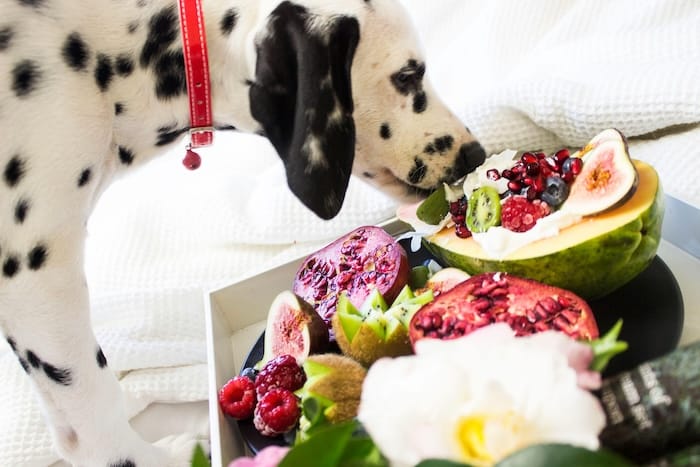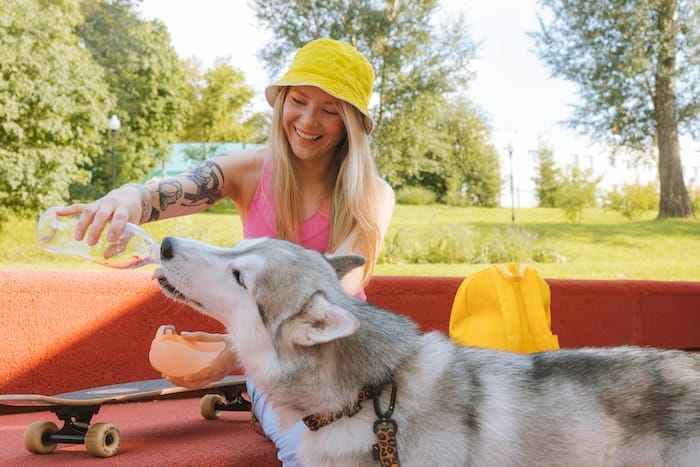As dog owners, we all want our furry friends to be in the best shape and lead healthy, happy lives. We take them for regular walks, give them belly rubs, and make sure they have plenty of toys to play around with. But one aspect that often gets overlooked is their gut health. A healthy digestive system is the foundation of the overall well-being of your dog, affecting everything from energy levels to their skin and coat condition and even their behavior. The key to maintaining a thriving gut for your dog is a balanced, nutritious diet tailored to their unique needs. Much like us, dogs rely on the right food for their gut. They need healthy gut microbiomes that play a crucial role and digestion in immune function.

Your dog’s gut is home to trillions of bacteria and microorganisms, collectively known as the microbiome. These microbes help break down food, absorb nutrients, and support your dog’s immune system. When the gut microbiome is imbalanced, your dog’s digestive system goes off track and has an impact on their mood and behavior as well. Over time, an unhealthy gut compromises your dog’s health, leading to skin irritations and even lethargy. And we all know nothing seems to go right when your pet is not in great shape and your mind stays occupied figuring out all the ways you could help them. There are plenty of healthy alternatives to regular nutritionless dog food such as dog ice cream which you can root for to keep your dog’s gut health in great shape. That’s why taking care of your dog’s gut health is vital for their longevity and happiness.
There can be various symptoms that indicate that your dog’s digestive system might be in distress. Some of the common symptoms are diarrhea or constipation. A sudden change in bowel movements can be a sign of gut imbalance or food sensitivity. A dog that refuses to eat or shows a lack of interest in food may be experiencing digestive discomfort. Lethargy and behavioral changes could also point to bad gut health. If you notice any of these symptoms, there could be an underlying health condition that needs attention. In this article, we will explore how to keep your dog’s digestive system in top shape. Because ultimately, all it takes is the right nutrition.
Tips for Optimal Digestive Health for a Thriving Dog

- Choose a High-Quality Dog Food
The foundation of your dog’s gut health is the food you provide. Opt for premium dog food made with high-quality ingredients such as real meat, vegetables, and whole grains. You can also include pet snacks in their diet to keep it exciting for your dog. Avoid foods with excessive artificial additives or cheap-quality proteins, as they can contribute to digestive upset and poor gut health. Every once in a while, look for dog foods that are specifically designed for digestive health. These foods often include prebiotics and probiotics. Together these ingredients help promote a healthy gut for your dog.
- Incorporate Probiotics into Their Diet
Probiotics are live bacteria that are good for your dog’s digestive system. Adding a probiotic supplement to your dog’s diet can support healthy gut bacteria, aid in digestion, and improve overall gut function. Just like in humans, probiotics help maintain a balance of good and bad bacteria in your dog’s gut. This is crucial for digestive health. You should always check with your vet before introducing a new supplement to ensure it’s appropriate for your dog’s specific needs.
- Focus on Fiber-Rich Foods
Fiber regulates bowel movements, prevents constipation, and supports the growth of beneficial bacteria in the gut. When choosing dog food, look for formulas with vegetables and fruits as they have fiber in plenty. You can look for pumpkins, sweet potatoes, and peas as they are high in fiber. You can also add fiber supplements or natural sources of fiber to your dog’s diet. A spoonful of canned pumpkin can be a great natural source of fiber and help regulate your dog’s digestive system.
- Hydration is Key
Dehydration can lead to digestive issues like constipation or sluggish digestion. Always make sure your dog has access to fresh, clean water at all times. To give extra hydration to your dog, try adding water to their food or offering ice cubes as a treat. Dehydration can also affect the gut lining, making it more vulnerable to irritation, so keep your dog properly hydrated for excellent and stable gut health.
- Avoid Sudden Diet Changes
Dogs can be really sensitive to sudden changes in their diet, which can disrupt their digestive system and lead to gastrointestinal upset. If you need to switch your dog’s food, do it gradually. Start by mixing small amounts of the new food into their old diet and give their diet the time to get accustomed to the new food; otherwise, their gut lining will be irritated, leading to serious issues.
End Note
A happy tummy leads to a happy dog! Dogs rely heavily on a healthy gut to stay happy, energetic, and vibrant. A healthy gut isn’t just about preventing gut issues; it’s the foundation of your dog’s overall well-being, affecting everything from their coat to their mood. Happy tummies truly do lead to happy tails.
